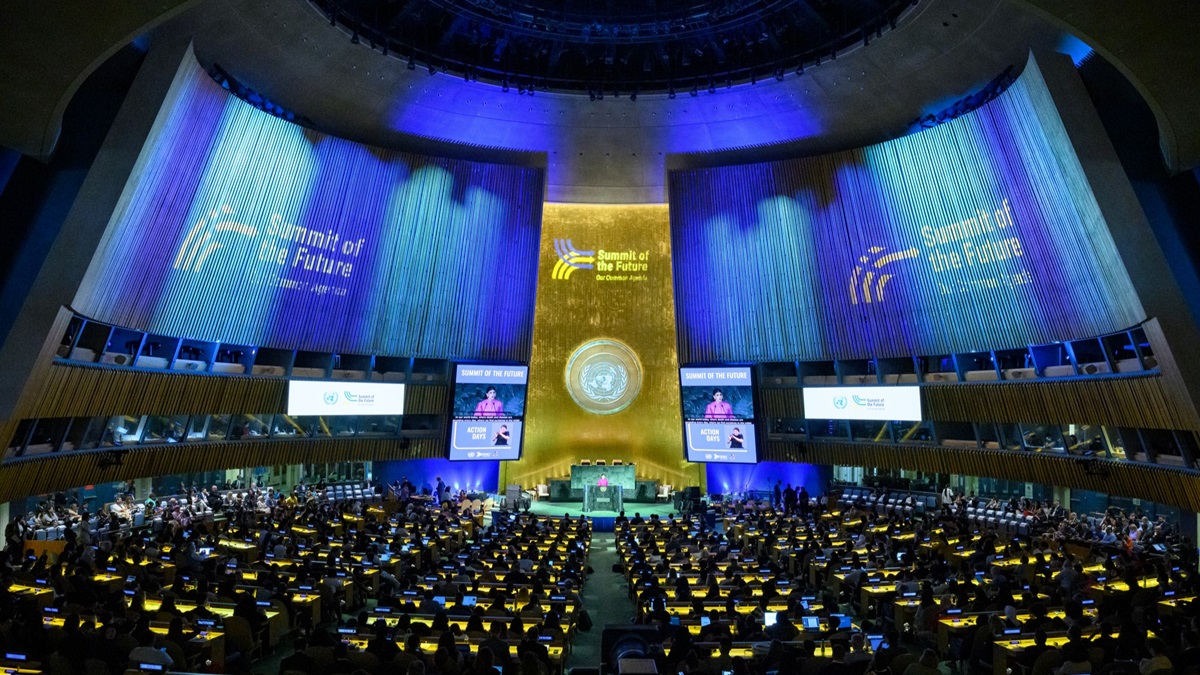The Pact sets a clear framework for rethinking trade and development, driving progress toward a more equitable and sustainable global economy for all.

© UN Photo/Loey Felipe
At the 79th UN General Assembly, world leaders adopted the Pact for the Future, a landmark commitment to tackle global challenges through multilateralism. Action 5 of the pact focuses on making the global trading system a driver of sustainable development, emphasizing export-led growth and preferential trade access for developing countries—crucial for achieving the Sustainable Development Goals.
UN Trade and Development (UNCTAD) plays a central role in advancing these principles, promoting fair and inclusive commerce that supports the Global South while addressing the growing intersection between trade, climate change and digital transformation.
The Global South’s growing influence
The rise of the Global South is reshaping global power dynamics, with developing nations playing an increasingly significant role in international trade and economic governance. Calls for reform - such as Brazil’s recent push for a more inclusive global governance system at the G20 - underscore the South’s growing influence.
This shift offers opportunities for developing countries to access global supply chains, partnerships and investments. However, these must be carefully managed to ensure that growth is sustainable and inclusive, aligning with the goals of the Pact for the Future.
Aligning trade with climate objectives
The alignment of trade policies with climate objectives is essential for sustainable development. UNCTAD has emphasized the need to integrate trade strategies into Nationally Determined Contributions under the Paris Agreement, promoting economic growth while addressing climate change. Sustainable trade can serve as a tool for both economic progress and environmental protection.
Critical minerals and climate-related trade measures
As the world transitions to a more sustainable economy, critical minerals such as lithium, cobalt, and nickel are vital for renewable energy technologies and digital infrastructure. While countries like the Democratic Republic of the Congo and Chile are rich in these resources, relying on raw material exports leaves them vulnerable to commodity price fluctuations. To avoid this, these nations must focus on value addition and economic diversification, ensuring local communities benefit and environmental impacts are minimized.
Simultaneously, climate-related regulations are reshaping global trade. For instance, the European Union’s Carbon Border Adjustment Mechanism seeks to reduce carbon emissions but also presents challenges for developing countries with less carbon-efficient production processes. These regulations could undermine the export competitiveness of least developed countries and small island developing states, which rely heavily on trade. A coordinated international effort is needed to provide these nations with the financial and technical support required to decarbonize their economies while remaining competitive.
Trade goes digital
Digital trade is transforming the global economy, with over 55% of services now delivered digitally. However, digital divides remain a significant barrier, particularly in low-income countries lacking the infrastructure to participate effectively. UNCTAD is working to bridge these divides through initiatives like the African Continental Free Trade Area’s Digital Trade Protocol, ensuring developing countries can engage in the rapidly growing digital economy.
Ongoing efforts by UN Trade and Development
For over six decades, UN Trade and Development has been at the forefront of addressing global trade and development challenges. Now, the Pact for the Future provides a bold framework for rethinking trade and development. By focusing on multilateralism, climate action and digital inclusion, the Pact lays the foundation for a more equitable and sustainable global economy. UN Trade and Development’s continued efforts to promote fair and inclusive trade will be crucial in realizing this vision.


